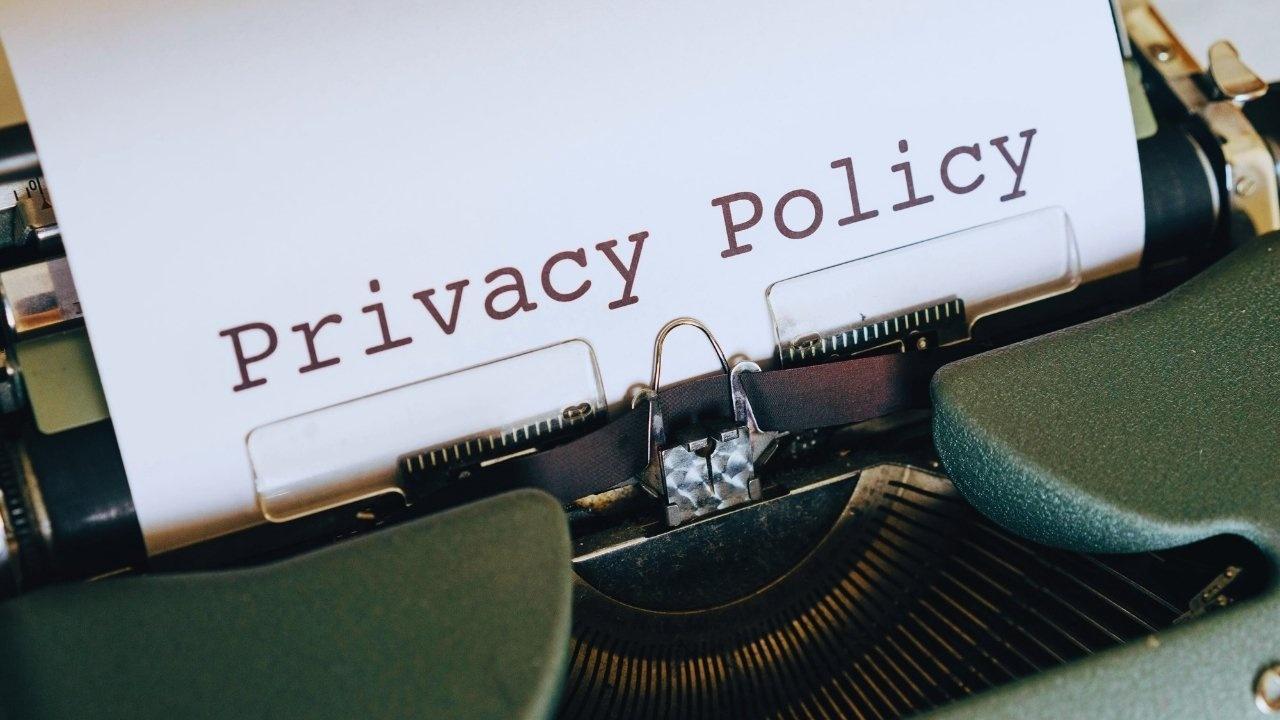You have not yet added any article to your bookmarks!

Join 10k+ people to get notified about new posts, news and tips.
Do not worry we don't spam!

Post by : Anis Farhan
Recently, a wave of regulatory and policy shifts has taken place, uniquely combining both national law enactments and platform updates. A landmark privacy statute is now fully active, compelling major companies to minimize data collection and enhance user control mechanisms. Additionally, platforms have altered their data-handling protocols, affecting ad-targeting, consent processes, and cross-platform user tracking.
For the typical online user, this week marks a vital opportunity to reassess your online habits, account privacy settings, and data sharing practices. Clinging to old ways could lead to unintentional data sharing or unawareness of new protective rights you now possess. Consider this a moment for a “privacy reset” that aligns your practices with the latest legal and regulatory developments.
A pivotal move this week has been the roll-out of a national privacy law that enforces stricter data collection practices among large digital firms. Companies must now clearly articulate their data usage purposes, limit non-essential data gathering, and inform users promptly in case of breaches. While harmonized with global data privacy frameworks, this new legislation introduces more stringent measures.
User Implications:
Firms must provide justification for each data-collection activity, discontinuing any that lack appropriate rationale.
Users receive enhanced rights to opt-out of unnecessary data collection and tracking.
Clearer notifications will be provided if your data is compromised.
Older data may require deletion or anonymization, facilitating a process for you to have your data “forgotten.”
With the policy officially active, every user in or associated with that region should conduct a thorough review of their data usage and services. Even international firms may adjust their global terms in response to these changes.
In conjunction with the regulation, prominent platforms have implemented updates affecting user data treatment. While not always publicized, these changes directly impact the applications you interact with daily.
Certain platforms are enhancing their use of interactions—be it through voice commands or chat entries—to refine ad personalization. The broader use of established “contextual data” may now influence your ad profiles, even if your actions don’t overtly signal preferences.
User Directive: Evaluate your privacy settings, opt-out of ad-personalization wherever possible, and consider deleting dated chat logs.
With the new legal framework in place, many platforms are redefining what constitutes “essential data.” Expect to encounter fewer default permissions or differing consent requests. It's an apt opportunity to scrutinize what permissions you've granted and to withdraw any unnecessary access.
User Directive: Check each application you use, analyze granted permissions, and revoke those that are non-essential.
Regulators expect speedier breach notifications, prompting platforms to refine their processes, making alerts more frequent and user-friendly options available for data management.
User Directive: Take this time to export your data and assess what you don’t wish to retain, as well as requesting the removal of older and unused accounts or services.
Some services are intensifying cross-platform data usage—activities spread across apps owned by the same entity are now more interconnected to enhance ad targeting or content personalization. Though this may streamline user experience, it also broadens data exposure.
User Directive: See if you can separate accounts or deactivate integrated data sharing features.
Here’s a practical checklist of actions to prioritize this week. Don’t delay—executing these changes now will leverage the current momentum.
Check app permissions like location, camera, and contacts on your devices.
Limit permissions for apps that you infrequently use.
Switch permissions for essential apps from “always” to “only while using” where applicable.
Many platforms feature privacy dashboards to overview data collection practices.
Opt out of personalized ads where preferred.
Consider removing outdated logs and conversations if options exist.
Utilize available options to download your data from major platforms.
Assess if there’s any sensitive information you no longer want retained.
Request the deletion of any unused accounts or dormant services.
Disable ad-personalization settings if you do not wish to be profiled.
Use features like “limit ad tracking” on mobile devices.
Employ privacy-centric browser extensions or utilize Private/Incognito mode to mitigate persistent tracking.
Check settings for linking accounts across services.
Consider opting out of linking if you prefer keeping profiles distinct.
Reflect on separate log-ins for sensitive interactions versus casual use.
Log in to legacy accounts or services you no longer engage with and evaluate their data holdings for deletion.
Dormant accounts can clutter your digital identity with unnecessary data.
As data gathering increases, so does vulnerability—be proactive with your security.
Utilize a robust password manager for unique, strong passwords.
Turn on Two-Factor Authentication, ideally through an authenticator app.
Monitor future notifications from platforms regarding terms, consent requests, and essential features.
Opt for services with transparent privacy policies that offer genuine user control.
With the new regulations and platform changes, this is a crucial “transition window” where users have greater influence. Companies will often present clearer opt-out options, simplified dashboards, and enhanced data-removal facilities. By taking action now, you stand to leverage these benefits; delaying might constrain your choices until the forthcoming update cycle.
Moreover, establishing a systematic data hygiene approach now will yield a more organized digital footprint, diminish connected permissions, and limit intrusive tracking. This proactive stance fosters your resilience in the face of possible breaches or future regulatory alterations while enhancing long-term privacy control.
Below, find examples of changes you may encounter after this week:
Requests for renewed consent for specific permissions or options to “review your data collection settings.”
Increased frequency of notifications about data collection motives, with simplified permission choices.
New opportunities to export or request deletion of data without excessive hurdles.
Prompts and alerts in-app directing you to new policy changes or your privacy dashboard.
Easier access to ad-profile controls, featuring simplified choice toggles.
In some cases, limitations on non-essential data collection in specific jurisdictions may become the norm.
Should you notice these prompts, view them as beneficial enhancements stemming from this week's changes.
While immediate measures are critical, the ripple effects stretch beyond:
As privacy regulations advance, anticipate bolstered rights concerning data deletion, corrections, portability, and more informed consent processes. Users cultivating clean data practices will remain agile moving forward.
Platforms prioritizing stringent privacy controls and transparency may thrive, making informed user choices essential for industry transformation.
The legal necessity for minimal-purpose data gathering will prompt firms to justify their data collection efforts, intending to decrease unnecessary data retention over time.
Expect apps to institute privacy defaults moving forward, rather than requiring opt-in scenarios later. The actions you take now will prepare you for these emerging standards.
As laws diverge globally, major platforms need to implement robust rights for user data management. Individuals with accounts interfacing across borders should remain attentive to how regional legislative adjustments influence their data security.
The privacy updates occurring this week represent more than mere policy adjustments—they herald a significant change. Regulatory developments are rapidly progressing, tech avenues are adapting, and user expectations are morphing. For users, the moment to act is now: rescind unnecessary permissions, analyze data collection practices, favor platforms that uphold privacy rights, and cultivate healthier digital habits.
Act now before default settings become the norm. It's your opportunity to align your online activity with your privacy priorities. Remaining passive is no longer an option; it leaves you susceptible to data exposure and limited control.
The information provided in this article is solely for advisory and editorial purposes and should not be construed as legal or technical counsel. Users are encouraged to seek advice from qualified professionals or refer to authentic platform guidelines and regional laws governing privacy protections.










Five Rising Stars Compete for BAFTA’s Only Public-Voted Film Award
BAFTA names five breakthrough actors for its public-voted award, celebrating bold new performances a

Scott Robertson Steps Down as All Blacks Coach After Review
Scott Robertson has agreed to leave his role as All Blacks head coach after a performance review, de

Afghanistan Limits Rashid Khan’s Overseas League Appearances
Afghanistan Cricket Board caps foreign league play for star players to protect fitness and ensure co

Philippines, Japan Strengthen Defence Ties Amid Regional Tensions
Philippines and Japan sign defence pacts, including military resupply deal and $6m naval support, am

Bounou the Hero as Morocco Beat Nigeria on Penalties to Reach AFCON Final
Goalkeeper Yassine Bounou shines as Morocco defeat Nigeria 4-2 on penalties to book a thrilling AFCO

Labubu Doll Factory Faces Worker Exploitation Allegations in China
Investigation claims Pop Mart supplier made employees work long hours, sign incomplete contracts, an